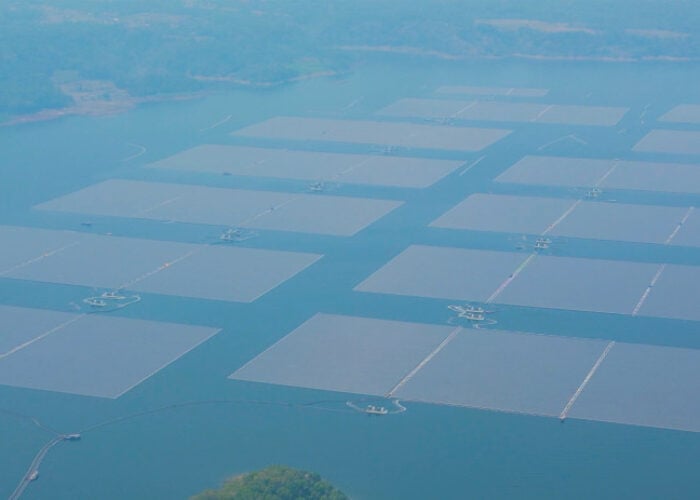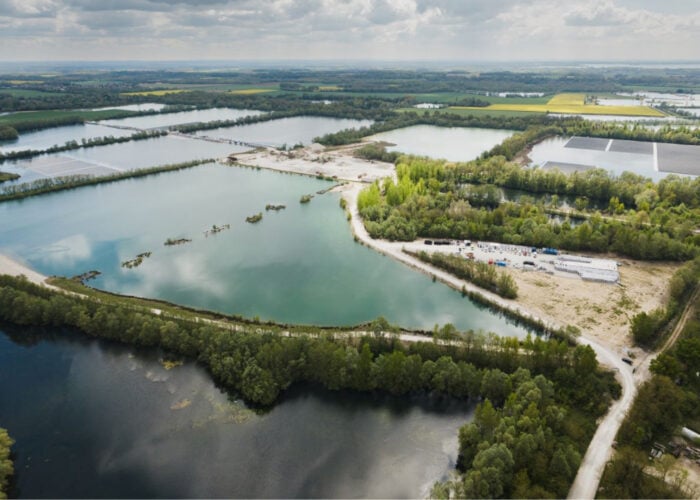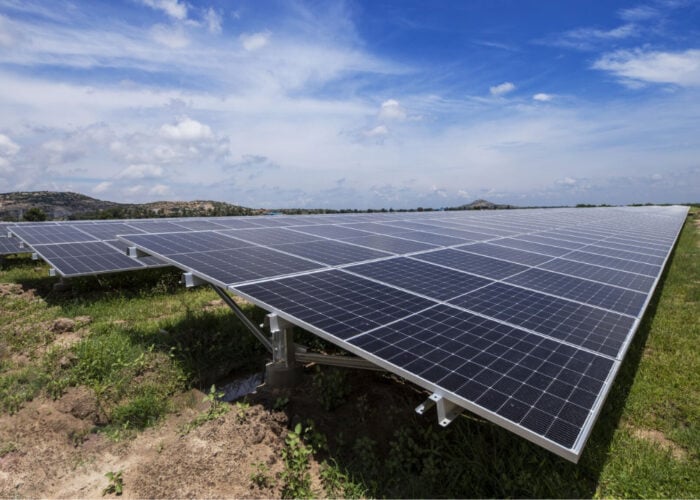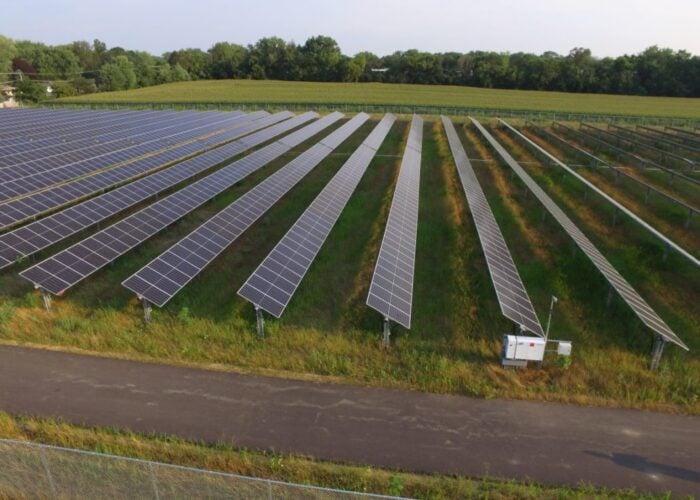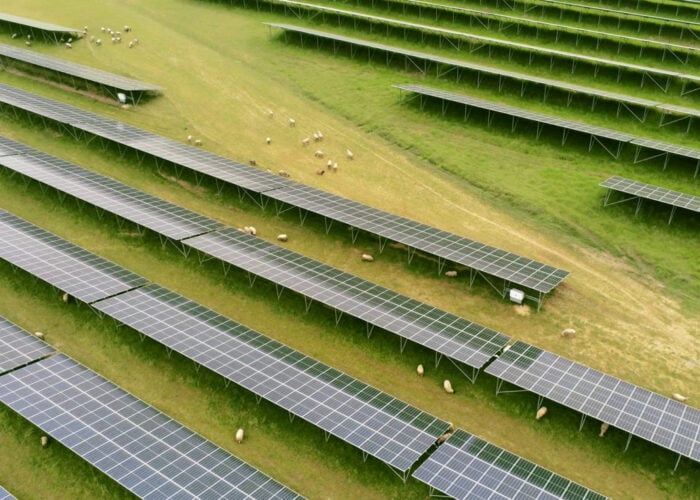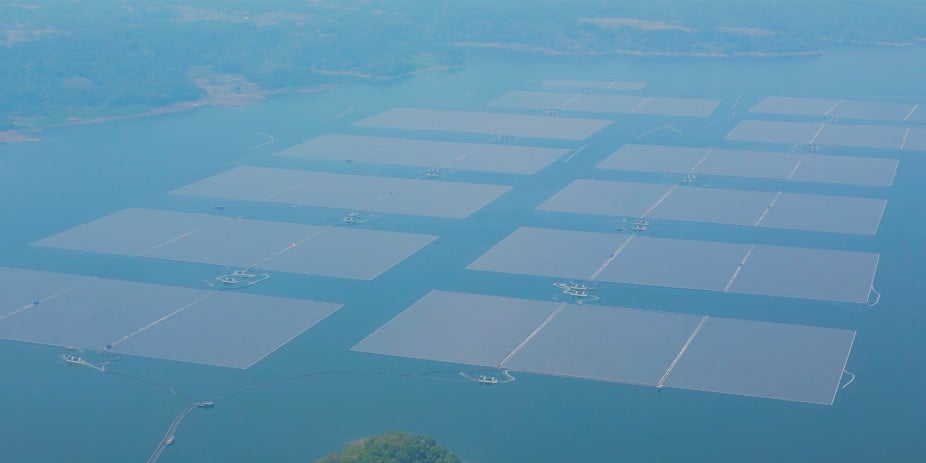
UAE state-owned renewable energy developer Masdar has signed a number of solar PV and renewables agreements in small and emerging global solar markets. It has inked deals with the governments of Angola, Indonesia, Poland and the Kyrgyz Republic that cover floating solar portfolio acquisitions and development framework agreements, during the course of the COP 28 conference in its home nation.
The conference is being chaired by Sultan Al Jaber, who heads up Masdar as well as the Abu Dhabi National Oil Company (ADNOC) and has been under fire in recent days over his statements regarding the need to phase out fossil fuel generation.
Unlock unlimited access for 12 whole months of distinctive global analysis
Photovoltaics International is now included.
- Regular insight and analysis of the industry’s biggest developments
- In-depth interviews with the industry’s leading figures
- Unlimited digital access to the PV Tech Power journal catalogue
- Unlimited digital access to the Photovoltaics International journal catalogue
- Access to more than 1,000 technical papers
- Discounts on Solar Media’s portfolio of events, in-person and virtual
Or continue reading this article for free
3.6GW EDF agreement in Kyrgyz Republic
Yesterday (3 December) Masdar and French developer EDF inked an agreement with the government of the Kyrgyz Republic to “explore” the development of 3.6GW of renewable energy and hydropower projects in the country.
The memorandum of understanding (MOU) marks Masdar’s first entry into the hydropower market, it said.
Taalaibek Ibraev, minister of energy of the Kyrgyz Republic said: “This agreement serves to further strengthen the existing ties between the Kyrgyz Republic, the UAE and France. Hydropower is a very important energy source for the Kyrgyz Republic and this agreement will help our nation to strengthen its existing clean energy supply and to develop projects utilising other renewable energy sources.”
Masdar has previously invested in solar generation in the Kyrgyz Republic, backing a 1GW renewables pipeline that started with a 200MW solar PV project early this year. Indeed, the central Asian market is one of Masdar’s most prominent regions for renewables development. It has standing interests in Azerbaijan and Turkmenistan, amongst other nations.
Expanding Indonesia’s ‘largest’ floating PV project
Also at COP 28, Masdar signed a framework agreement with its long-standing collaborator PLN – the Indonesian state-owned electricity utility – to expand the capacity of the 192MWp Cirata floating solar (FPV) plant.
Currently the ‘largest’ FPV installation in Southeast Asia, the agreement will pursue ‘joint study’ to expand the Cirata project’s capacity by up to 500MW. This would put it firmly amongst the largest FPV sites in the world. The original site was inaugurated in November this year, and discussions for its expansion first emerged with an MOU in September.
The companies also agreed to pursue green hydrogen production opportunities and other renewable energy projects in Indonesia across the world.
PV Tech Premium recently looked into the potential for FPV developments in Southeast Asia; according to data from Wood Mackenzie, 5 of the top 10 countries for installed FPV capacity through 2031 will be in the region.
150MW plant in Angola
In another deal, Masdar inked plans with the Angolan Ministry of Energy and Water to develop a 150MW PV plant in the south of the country.
Due to be built in Hulia province, Masdar said that the project will go towards increasing the security of energy supply in Angola, which has hitherto relied on high-emissions and insecure generation supplies.
“Our mission is to fast-track and scale projects so we can deliver 10GW of clean energy in Africa by 2030,” said Masdar CEO Mohamed Jameel Al Ramahi. “Masdar is an anchor partner of the UAE-led Africa Green Investment Initiative and has committed to mobilise US$10 billion in clean energy finance, of which US$2 billion will be generated from equity with an additional US$8 billion from project finance. This transformative project in Angola is a proud milestone on that pivotal journey.”
Masdar has established significant influence in the African renewable energy sector over the years, particularly in solar PV developments. In January 2023 it signed a framework deal with the Angolan Ministry of Energy and Water with a view to developing 2GW of solar and wind in the country, along with a 1GW deal for similar developments in Uganda. In August it signed a deal with the Ethiopian government for 500MW of solar PV projects, developing on discussions that began in 2021.
1GW Polish portfolio acquisition
In a final announcement, Masdar today (4 December) announced the acquisition of a 1GW solar PV, onshore wind and hybrid project portfolio in Poland alongside Taaleri Energia, a Finnish renewables developer.
The eight projects are expected to be operational between 2026-30 and have been driven by the recently-updated cable pooling law in Poland, which allows for multiple renewable energy sources to share the same grid connection. They were purchased from Polish developer Domrel Biuro Usług Inwestycyjnych.
“We applaud Poland’s recent legislative developments in the renewable and clean energy sector, which have opened the door for additional renewable capacity by allowing hybrid solar-wind projects to connect to the grid,” said Al Ramahi.
Like Indonesia, Angola and the Kyrgyz Republic, Poland is an emerging market for solar PV and renewables. From these announcements, all coming out of the COP 28 conference in Dubai, Masdar seems to be targeting these nascent or fast-growing markets where other large players have perhaps less of a market influence. Poland reached 18GW of total installed PV capacity as of Q3 2023 and 6.6GW of projects have been granted grid connection permits since the start of the year, as it is in the process of becoming one of the most prominent PV markets in Europe.

